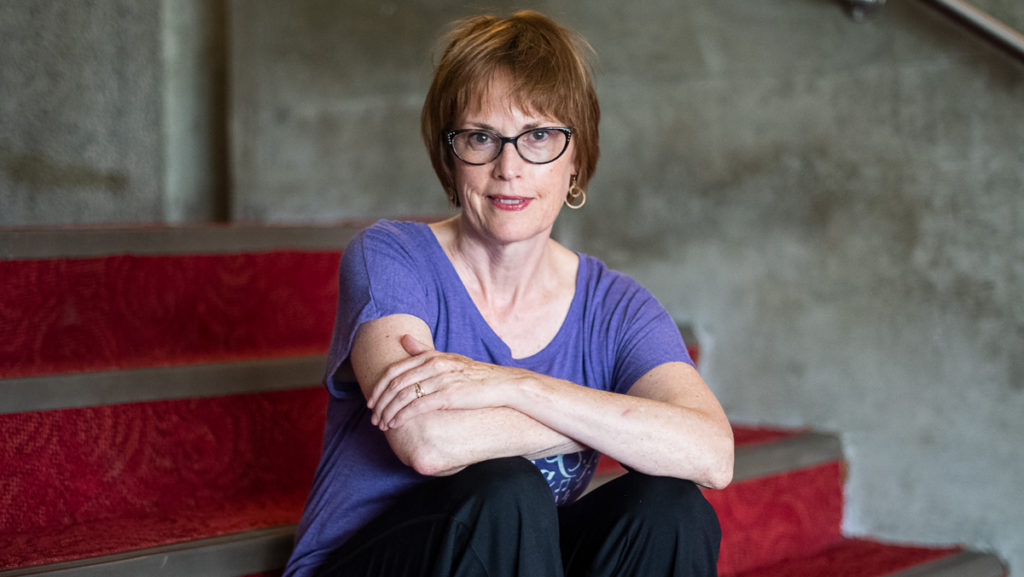Kathleen Mulligan, professor in the Ithaca College Department of Theatre Arts, recently hosted a workshop called “Putting Your Best Voice Forward” at Cornell University, giving female students a map on how to use their voice for self-empowerment.
Mulligan has worked on many projects over the years, using her experience and knowledge with theater to show women around the world the power that their own voices hold.
Staff Writer Cecilia Meza spoke with Mulligan about her workshop and the motivation behind her work.
This interview has been edited for length and clarity.
Cecilia Meza: In 2011 you traveled to India for your “Finding Women’s Voices” project. What motivated you to start the project and how did you get involved in India in the first place?
Kathleen Mulligan: I do a lot of work with women in the United States working on voice with them, non-actors, and I find that a lot of times I worked with women that are having trouble finding authority and frankly being listened to, especially in male-dominated fields. I taught a workshop at Cornell in 2008 and worked with a lot of assistant and associate professors, women, in science and engineering, and I found that a lot of them were saying ‘I don’t feel like the men in my department listen to me in faculty meetings and sometimes I feel that students don’t listen to me,’ and they were exhibiting some habits that I hear in women, especially young women … They were speaking in what I call vocal fry from the throat and also speaking in up-speak, meaning making everything sound like a question. It makes it sound like you’re maybe asking for approval, kind of testing the waters. There were a couple of people from India in that workshop, and they talked about the challenges they faced growing up in India, what their families and society were telling them and giving messages as far as how they should speak, and that’s how I got the idea to apply for the Fullbright in India … Also, my husband spent the first six years of his life in India, so I knew he was very interested in returning and that made me particularly interested in visiting the country. So a lot of things sort of came together, I mean frankly, I could teach that workshop anywhere in the world, but it happened to be India.
CM: How do you help the people who attend your workshops change the way they speak?
KM: Well it’s what I do for a living, it’s what I do with actors at Ithaca College and have taught at other places … and it’s basically taking a lot of the work that I do with actors that are training to be performers and are able to use their voice in a large space and make sure that they are understood and are heard and just adjusting maybe those exercises slightly … It’s all about breath support, resonance, those are the two main things.
CM: How did your previous experience with workshops, like the one you held in India, influence your most recent workshop “Putting Your Best Voice Forward” that was held at Cornell?
KM: I would say that it’s an ongoing process. The first workshop that I taught in 2008 in Cornell led me to developing the workshop for India. I’ve continued to develop it, as I taught the workshop in Pakistan, in Lebanon and regularly at Cornell; they invite me back usually every other year to teach the workshop again. So, just like with any class, I’m always adjusting and trying to find better ways to get an idea across. It would be hard to say which came first.
CM: What motivates you to work on the projects that you work on?
KM: Well that’s kind of a broad question, because I work on so many different kinds of projects … When you’re a freelance actor, which I was for years, so much of what you’re doing is just trying to survive and I need to get enough weeks of work so that my health insurance will be covered and I need to pay the rent. Having this job where I have a salary and have time off has given me the opportunity and the freedom to pursue some new things, and now I would just say that I have realized the power of theater and how it can change people’s minds and their hearts and I look for projects that have the opportunity to do that.








